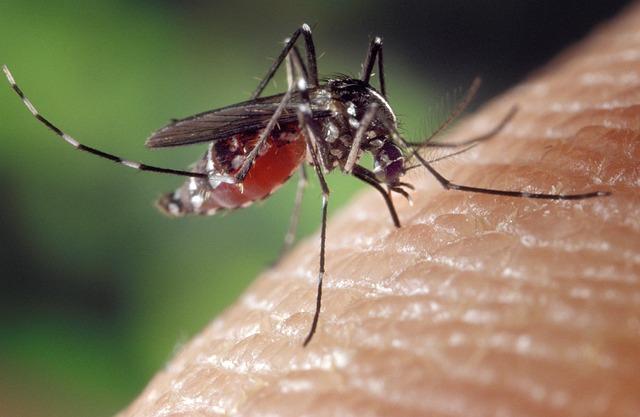Mosquitoes are common, flying insects that inhabit the majority of the planet. They, both male and female, consume nectar as food. However, blood is essential for their reproduction providing adequate nutrition, including protein and iron, to produce and hatch eggs. Therefore, it is the female mosquitos that bite humans or animals for their survival.
A female mosquito can detect human exhaled CO2, body temperature, and body odor. Some individuals, however, are “mosquito magnets” who receive more bites than others. Blood type, blood sugar level, garlic or banana consumption, being female, and being a child are all theories about bite preferences. Leslie Vosshall, director of Rockefeller’s Neurogenetics and Behavior Laboratory, asserts that most hypotheses lack credible data.
Vosshall and Maria Elena De Obaldia, a former postdoc in her lab, explored the dominant idea to explain appeal: individual odor variations linked to skin bacteria. The researchers’ study showed that skin fatty acids might emit a perfume that the insets cannot resist. The findings are published in the journal Cell reported their findings (De Obaldia et al., 2022).
Vosshall, the Robin Chemers Neustein Professor at Rockefeller University, says the concentrations of some fatty acids on the skin make someone a ‘mosquito magnet.’
The study
In the three-year trial, eight subjects wore nylon stockings six hours a day for multiple days. Then the researchers examined the nylon stockings in a round-robin-like “competition.” De Obaldia created a two-choice olfactometer assay consisting of a plexiglass chamber with two tubes ending in stocking boxes. They placed Aedes Aegypti mosquitoes in the main chamber and watched as they flew down the tubes towards one nylon or the other.

In the trial, the researcher observed that Subject 33 was 100 times more attractive to Aedes aegypti than the least attractive person, Subject 19.
Experimenters did not know which subject wore which nylon since the samples were de-identified. Insects would swarm Subject 33’s sample, indicating the presence of something special in it. De Obaldia added: ‘As a scientist, the findings excited me. It is true. Not nitpicking. The outcome is enormous.’
Researchers separated individuals into high and low attractors and asked what set them apart. They conducted a chemical analysis to find 50 molecular components in the sebum, an oily substance found on the skin, of high-attracting participants. Mosquito magnets produced more carboxylic acids than less-attractive volunteers. Sebum contains chemicals utilized by skin microorganisms to produce body odor.
Vosshall’s team recruited 56 persons to corroborate their findings. Again, Subject 33 remained the most alluring.
“We saw that if a subject was a mosquito magnet, they remained the same,” adds De Obaldia. Many aspects of the individual or their behavior could have altered, yet this was a stable trait.
Mosquitoes detect human scents through Orco and IR receptors. Researchers generated mutant mosquitoes missing one or both receptors to make them human-blind. Orco mutants remained attracted to humans and could distinguish mosquito magnets from low attractors, while IR mutants lost their affinity to humans but could still find us.
The scientists were disappointed. “The goal was to find a mosquito with little or no attraction to people and could not differentiate Subject 19 from Subject 33 apart. It could lead to better mosquito repellents”, Vosshall says.
Vosshall’s recent Cell study demonstrated the redundancy of Aedes aegypti’s complex olfactory system. Female mosquitoes rely on it to live and breed.
The mosquito scent tracker’s seeming unbreak ability makes it hard to imagine a future study without humans. Manipulating skin microbiomes is one possibility. Subject 33’s skin could be masked by sebum and skin germs from Subject 19’s skin.
Vosshall says: “We have not tried that. That is an experiment. A nutritional or microbiome intervention where you put bacteria on the skin that can modify how they interact with sebum may turn Subject 33 into Subject 19. It is just speculation.”
She and her colleagues hope this paper will inspire researchers to investigate other mosquito species, including the malaria-spreading genus Anopheles. “I would love to know if this is a universal effect,” says Vosshall.




















